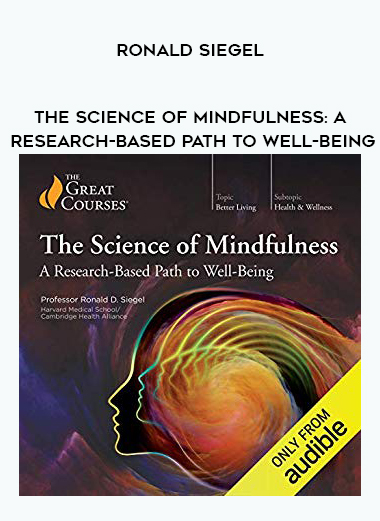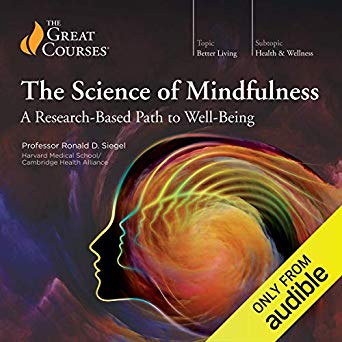
Ronald Siegel – The Science of Mindfulness: A Research-Based Path to Well-Being
Ever noticed that trying to calm down often produces more agitation? That trying to change bad habits can seem impossible? Or that real fulfillment can be elusive, despite living a successful life?
Often, such difficulties stem from the human brain’s hardwired tendency to seek pleasure and avoid pain. Modern science demonstrates that this survival mechanism served the needs of our earliest ancestors, but is at the root of many problems that we face today, such as depression, compulsive and addictive behaviors, chronic pain, and stress and anxiety.
For thousands of years, people have used mindfulness practices to deal effectively with a wide range of life challenges. But how exactly does mindfulness work, in scientific terms? How can the human brain, which gives rise to so many of our problems, actually provide a solution?
We are now in the midst of an explosion of scientific research demonstrating that mindfulness practice changes both the function and the structure of the brain. Numerous studies show which parts of the brain are affected by mindfulness practice, and how these neurobiological changes benefit our minds and bodies.
Now, in the 24 fascinating lectures of The Science of Mindfulness, Professor Siegel, a clinical psychologist at Harvard Medical School, reveals the science behind mindfulness in compelling detail and demonstrates its application to a wide range of issues – psychological, social, and medical. You’ll examine the neurobiology underlying ancient practices that are now profoundly influencing the contemporary world. And you’ll learn many practical ways you can use mindfulness techniques in your own life.
This playful, caring course demonstrates the effectiveness of mindfulness in responding to many of humanity’s fundamental existential problems.
In addition, this audiobook has complementary soundtracks, which are included in the audiobook from chapters 25 to 29.
What is Hypnosis & NLP ?
Neuro-linguistic programming (NLP) is a pseudoscientific approach to communication, personal development, and psychotherapy created by Richard Bandler and John Grinder in California, United States, in the 1970s. NLP’s creators claim there is a connection between neurological processes (neuro-), language (linguistic) and behavioral patterns learned through experience (programming), and that these can be changed to achieve specific goals in life. Bandler and Grinder also claim that NLP methodology can “model” the skills of exceptional people, allowing anyone to acquire those skills. They claim as well that, often in a single session, NLP can treat problems such as phobias, depression, tic disorders, psychosomatic illnesses, near-sightedness, allergy, the common cold, and learning disorders. NLP has been adopted by some hypnotherapists and also by companies that run seminars marketed as leadership training to businesses and government agencies.
There is no scientific evidence supporting the claims made by NLP advocates, and it has been discredited as a pseudoscience. Scientific reviews state that NLP is based on outdated metaphors of how the brain works that are inconsistent with current neurological theory and contain numerous factual errors. Reviews also found that all[dubious ] of the supportive research on NLP contained significant methodological flaws and that there were three times as many studies of a much higher quality that failed to reproduce the “extraordinary claims” made by Bandler, Grinder, and other NLP practitioners.
Ronald Siegel – The Science of Mindfulness: A Research-Based Path to Well-Being
Readmore About : Ronald Siegel














![Actioncoach.Kajab - Brad Sugars Profit Masters [Billionaire in Training] download](https://ivseeed.com/wp-content/uploads/2022/03/zz.jpg)
























Reviews
There are no reviews yet.